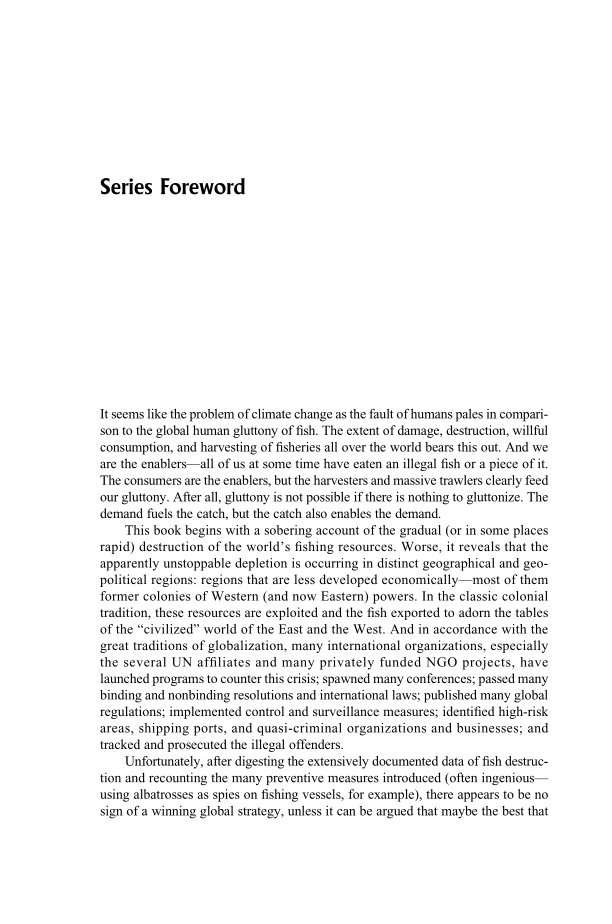Series Foreword It seems like the problem of climate change as the fault of humans pales in compari- son to the global human gluttony of fish. The extent of damage, destruction, willful consumption, and harvesting of fisheries all over the world bears this out. And we are the enablers—all of us at some time have eaten an illegal fish or a piece of it. The consumers are the enablers, but the harvesters and massive trawlers clearly feed our gluttony. After all, gluttony is not possible if there is nothing to gluttonize. The demand fuels the catch, but the catch also enables the demand. This book begins with a sobering account of the gradual (or in some places rapid) destruction of the world’s fishing resources. Worse, it reveals that the apparently unstoppable depletion is occurring in distinct geographical and geo- political regions: regions that are less developed economically—most of them former colonies of Western (and now Eastern) powers. In the classic colonial tradition, these resources are exploited and the fish exported to adorn the tables of the “civilized” world of the East and the West. And in accordance with the great traditions of globalization, many international organizations, especially the several UN affiliates and many privately funded NGO projects, have launched programs to counter this crisis spawned many conferences passed many binding and nonbinding resolutions and international laws published many global regulations implemented control and surveillance measures identified high-risk areas, shipping ports, and quasi-criminal organizations and businesses and tracked and prosecuted the illegal offenders. Unfortunately, after digesting the extensively documented data of fish destruc- tion and recounting the many preventive measures introduced (often ingenious— using albatrosses as spies on fishing vessels, for example), there appears to be no sign of a winning global strategy, unless it can be argued that maybe the best that
Document Details My Account Print multiple pages
Print
You have printed 0 times in the last 24 hours.
Your print count will reset on at .
You may print 0 more time(s) before then.
You may print a maximum of 0 pages at a time.









































































































































































































